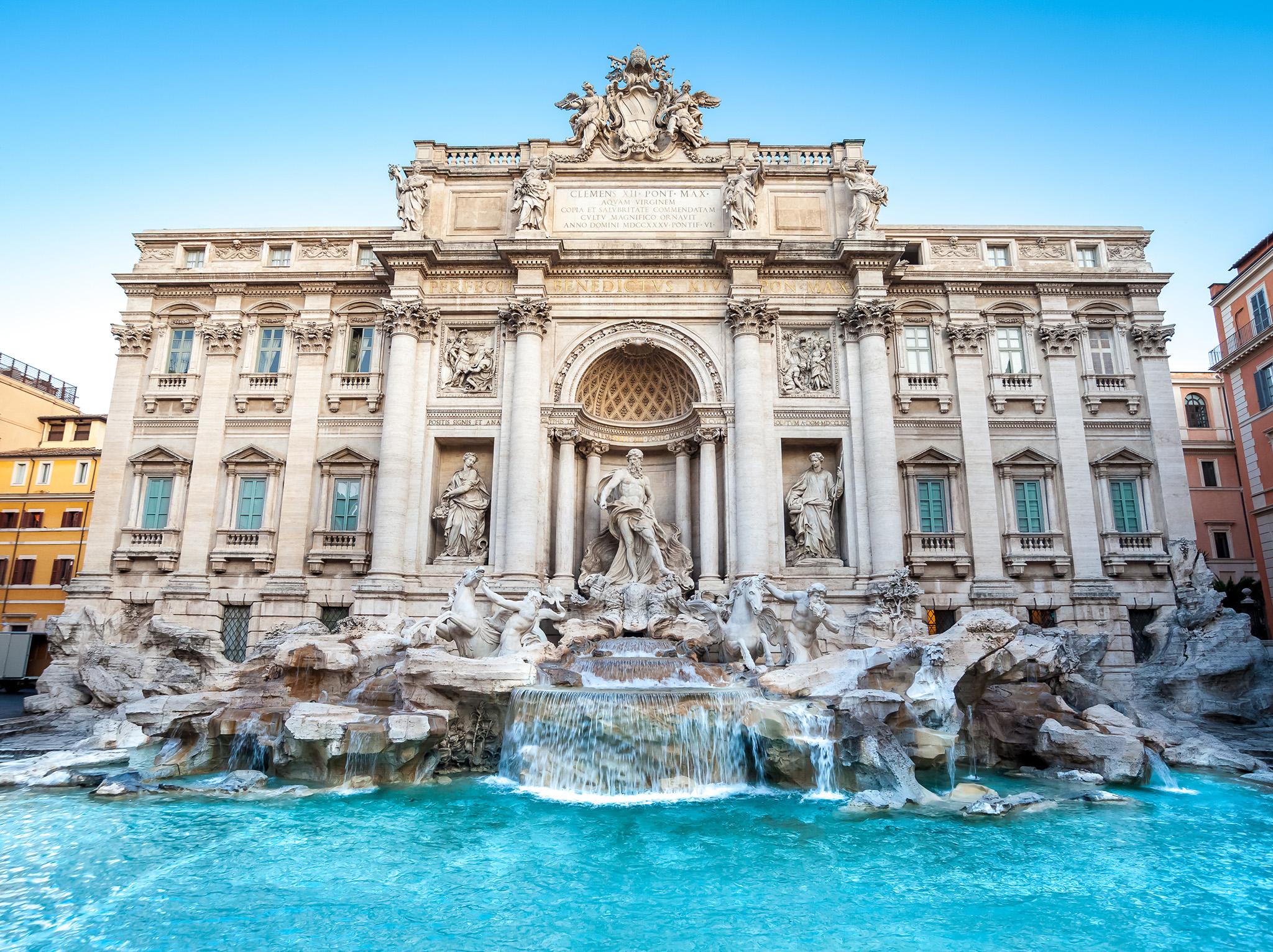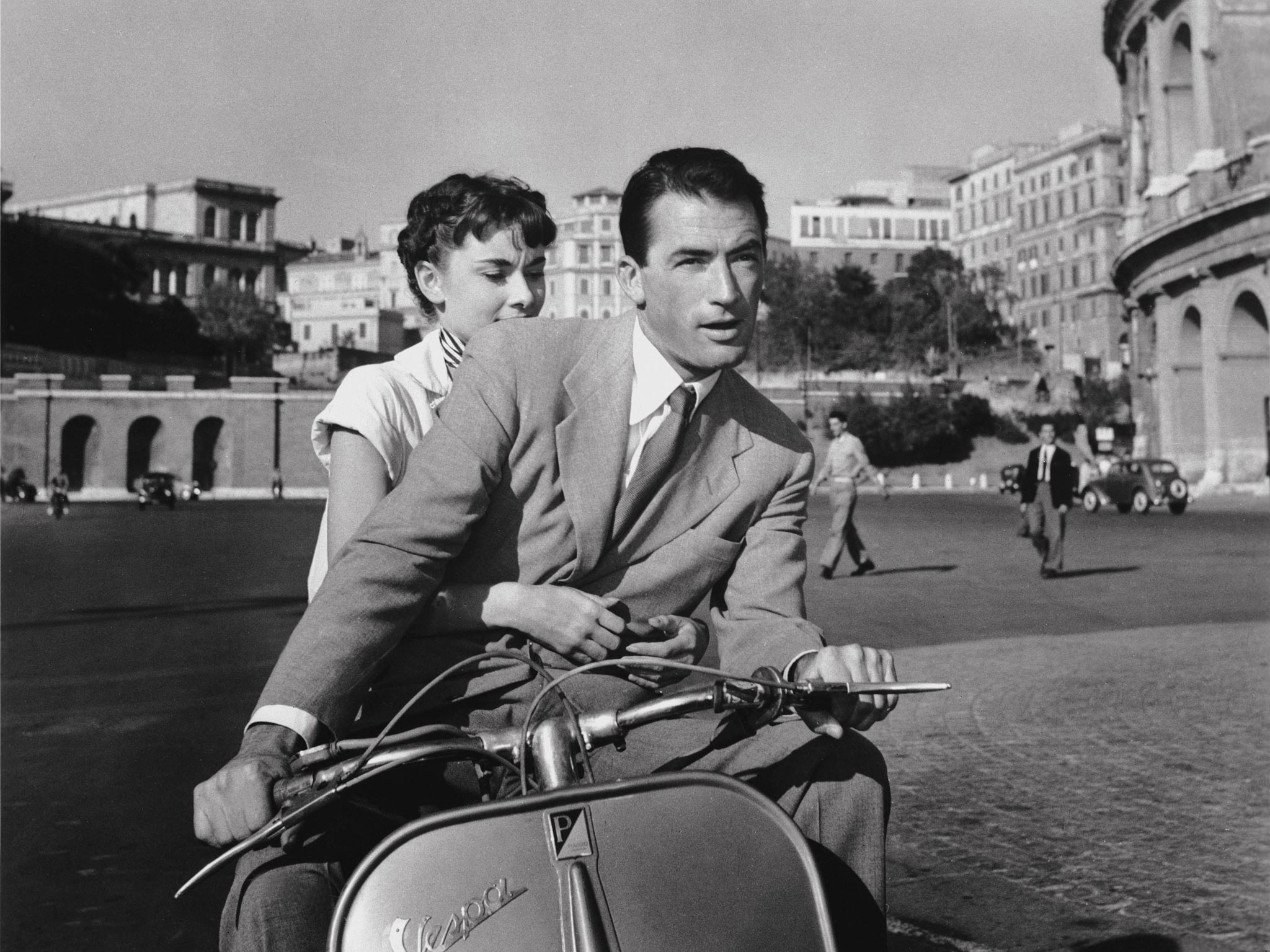How to visit Rome without leaving home
Armchair Travel: Experience the Italian capital during lockdown

Your support helps us to tell the story
From reproductive rights to climate change to Big Tech, The Independent is on the ground when the story is developing. Whether it's investigating the financials of Elon Musk's pro-Trump PAC or producing our latest documentary, 'The A Word', which shines a light on the American women fighting for reproductive rights, we know how important it is to parse out the facts from the messaging.
At such a critical moment in US history, we need reporters on the ground. Your donation allows us to keep sending journalists to speak to both sides of the story.
The Independent is trusted by Americans across the entire political spectrum. And unlike many other quality news outlets, we choose not to lock Americans out of our reporting and analysis with paywalls. We believe quality journalism should be available to everyone, paid for by those who can afford it.
Your support makes all the difference.While lockdown restrictions may be easing across the world, travel to our favourite city break destinations remains far out of reach. The Foreign Office is still issuing a blanket ban on all overseas travel that isn’t deemed “essential”; those up for ignoring the advice are likely to face a mandatory 14-day quarantine upon their return.
But even from afar, the Eternal City shines bright. June is the perfect time to visit, whether in person or from the comfort of your living room. Rome’s abundantly plentiful cache of history, architectural delights and art can still be plundered via the wonder of the internet, while the currently spectacular British weather means you can almost make-believe you’re there if you whack on the Dean Martin and mix yourself an Aperol spritz.
Here’s the ultimate armchair travellers’ guide to Rome.
What to do
Sistine Chapel
The great thing about doing a virtual tour of Michelangelo’s masterpiece rather than seeing it in the flesh is that you don’t have to spend several hours traipsing the entire length of the Vatican Museum, trudging shoulder-to-shoulder with grumpy, sweating strangers like a herd of cattle, in order to reach it. Even when you finally get there, you’re squished in like sardines and encouraged to move on as swiftly as possible by sharp-eyed stewards.
In the digital world, however, you are the only visitor – you can linger, take in the detail, zoom in on different parts that you like. And you can do it all while wearing a crop top and hot pants, something that’s certainly not encouraged at the real deal.
The Colosseum
If you’ve got an hour to spare, hop onboard a virtual walking tour of the Colosseum, kindly provided by Prowalk Tours. It starts right from the metro station for the “authentic” experience, before taking in all four levels, including the arena floor and the underground “Hypogeum”. As well as giving you the chance to admire one of the most iconic landmarks in the world, it’s sort of lovely, too, to be transported back to a world in which thousands of strangers could merrily congregate in one place with zero concerns.

The Pantheon
There are several virtual tours, but for a peaceful experience of this former Roman temple, try the “360 VR Meditation” video: it allows you to explore the structure in 360-degrees from one vantage point, while including the gentle strains of tourists’ chatter (which somehow manage to sound like the sea), and the beautiful choral music from singers positioned inside at intervals throughout the video.
Trevi Fountain
To really pretend you’re in Rome, hang out by the Trevi Fountain in real time using its live webcam. It’s heartening to see a few visitors taking in the pale blue water, but astonishing compared to what this scene would usually look like in early summer.

You may not be able to throw in a coin right now, but that doesn’t mean you won’t return for real some day.
Local flavours
One big reason for going to Rome is to indulge in its culinary delights. Nonna Nerina, an 84-year-old Italian grandmother who lives just outside of Rome, usually runs “Handmade pasta with grandma” workshops with her granddaughter as one of Airbnb’s “experiences”.
But since the start of the pandemic, she’s been offering livestreamed online classes called “Nonna Live”, where participants receive a shopping list the week before, translated notes from Nonna Nerina, and wine pairings for each dish. Classes are two hours long and cost $50 (£40).
You can also learn to make the most classic of Roman dishes, pasta e ceci (pasta and chickpeas), on a virtual cooking class from Withlocals, costing from £13.65 a class.

Or get stuck in without a screen by snapping up a recipe book, such as Tasting Rome: Fresh Flavors and Forgotten Recipes from an Ancient. It’s a showcase of modern dishes influenced by tradition, with each recipe acknowledging its origins while also exploring how it transitioned to the variations found today.
In terms of drinks, although strictly speaking it may be more Venetian than Roman, a spritz goes down nice and easy at this time of year. Check out the blog The Roman Foodie for recipes of several variations.
Setting the scene
Where to begin? The Eternal City has served as inspiration for countless cultural offerings. But a good jumping off point is clearly Roman Holiday: this classic film sees Gregory Peck and Audrey Hepburn skipping around the city on a Vespa and falling in love with one another (while you fall in love with the scenery).

Fellini’s 1972 film Roma gives a different, less romantic but more fascinating view of the Italian capital. A semi-autobiographical story depicting director Federico Fellini’s move from Rimini to Rome, it features a series of loosely connected scenes that take place in the 1930s and 1970s.
For the true Roman experience, Gladiator lets you experience the empire in its heyday. A particular highlight is seeing the Colosseum as it would have looked in 180AD.
(There are also two separate but equally terrible-looking romcoms called When In Rome, one of which stars the Olsen twins. It’s safe to say you can probably give both a miss.)
Neatly ticking the boxes of “holiday read” and “being set in Rome (among other places)” Eat, Pray, Love is the bestselling account of writer Elizabeth Gilbert’s attempt to rediscover herself after a messy divorce, which has since been adapted into a film with Julia Roberts. The book’s best bit is undoubtedly the “Eat” section, where the protagonist learns Italian and imbibes all manner of delicious grub while wandering around Rome.

Soundtrack wise, does it get better than Dean Martin’s An Evening in Roma? It does not, my friend. Crank it up loud and proud. If classical music is more your style, mezzo-soprano Cecilia Bartoli hails from Rome and has a decent set of pipes on her, to put it extremely mildly.
Bring it home
If you’re looking for authentic cuisine, check out myDelibox – an Italian online delicatessen where you can order famed Italian products at fairly reasonable prices.
Roman “Concept store” myzarstore sells fashion, accessories and jewellery in its online shop, as well as skincare products. And if that’s not enough concept for you, there’s also Dana Roma; located in a small church in central Rome, it combines art and fashion with a focus on brands that are “made in Italy”. Although part of the joy is undoubtedly going in and having a nose around, you can still click through from Dana’s site to find all the Italian-made labels they’ve curated for the best in local design.
Anything else?
If the weather continues to be fine, what really gives the vibe of being in Rome is authentic Italian gelato. Until your local ice cream place is open once more, you can buy Grom gelato from Waitose in pistachio, chocolate and coffee flavours for the astronomical price of £6.99. Gulp.
Join our commenting forum
Join thought-provoking conversations, follow other Independent readers and see their replies
Comments